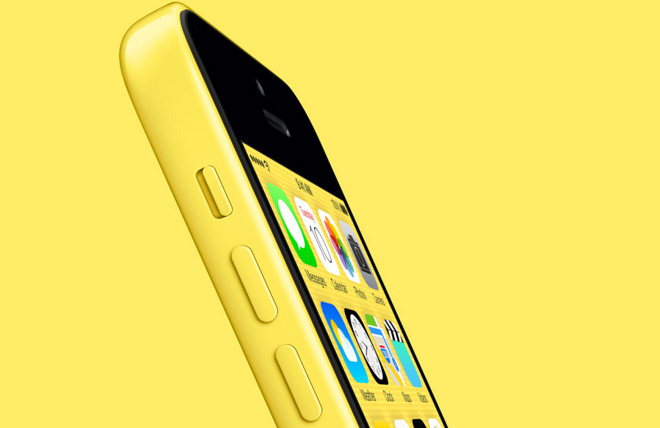In Apple's final response before a scheduled court hearing next week regarding the San Bernardino iPhone encryption case, the company said the Department of Justice is making an unprecedented request that usurps due legal process, democratic policy and Constitutional rights.
Apple's crack legal team, led by Theodore Boutrous, Jr. and Ted Olson, in today's response (via Christina Warren) reassert many of the same arguments posed in an initial response to the California court order, specifically limitations to the All Writs Act and potential infringement of Apple's First Amendment rights. The case, Apple says, is not about "one iPhone," but rather precedent for compelling private companies to hand over customer data at the behest of law enforcement officials.
"It has become crystal clear that this case is not about a 'modest' order and a 'single iPhone,' as the FBI director himself admitted when testifying before Congress two weeks ago," the filing reads. "Instead, this case hinges on a contentious policy issue about how society should weigh what law enforcement officials want against the widespread repercussions and serious risks their demands would create."
Apple references a recent congressional hearing on encryption attended by FBI Director James Comey, Apple's lead counsel Bruce Sewell and other associated parties. Comey at the hearing said he would "of course" leverage any precedent set in the California case to unlock iPhones in other investigations.
In February, Apple was ordered by a federal magistrate judge to comply with FBI requests for assistance in unlocking an iPhone 5c used by San Bernardino terror suspect Syed Rizwan Farook. Specifically, the government is asking Apple to code, sign and deploy an intentionally flawed version of iOS susceptible to brute-force passcode attacks, something security experts warn weakens the inherent safeguards built into millions of devices worldwide.
The company is resisting the ruling, saying the Department of Justice's application of the All Writs Act, a law that provides courts the ability to issue orders when all other judicial options are exhausted, is improper.
Furthermore, the Justice Department and FBI argue that this Court must decide the issue in a vacuum, without regard to either the swirling national debate about mandating a back door or the dangers to the security and privacy of millions of citizens posed by the relief they seek on behalf of the United States. But to determine whether this is an issue capable of judicial resolution under the All Writs Act and the Constitution, the Court not only can consider this broader context, it must do so. Indeed, the Justice Department and FBI are asking this Court to adopt their position even though numerous current and former national security and intelligence officials flatly disagree with them.
Those siding with Apple on the encryption debate foresee a quick deterioration of civil liberties if the DOJ is successful in garnering the motion to compel. Apple itself presented the slippery slope argument on multiple occasions, saying a government win would grant the DOJ limitless power in executing search warrants for digital information.
When it comes to AWA, Apple takes issue not only with the statute's scope, but its application to the instant case. Government overreach aside, the company contends FBI officials have not yet proven necessity, a prerequisite to asserting AWA. Again recalling the early March congressional hearing, Apple notes Comey said he did not know what avenues the FBI had exhausted in its attempts to decrypt Farook's iPhone.
The Justice Department's shifting, contradictory positions on this issue— first blaming the passcode change on the County, then admitting that the FBI told the County to change the passcode after the County objected to being blamed for doing so, and now trying to justify the decision in the face of Director Comey's admission that it was a mistake— discredits any notion that the government properly exhausted all viable investigative alternatives before seeking this extraordinary order from this Court.
Some security experts have claimed the NSA has developed forensics tools capable of breaking iOS encryption, but the agency is supposedly reluctant to relinquish those assets to the FBI as they might end up exposed in court proceedings. In a footnote Apple said, "The government is adept at devising new surveillance techniques."
Importantly, Apple maintains that the political ramifications of creating a software bypass cannot be divorced from the case at hand, as the government is attempting in its assertions. For its part, the Justice Department claims concerns of a weakened iOS encryption backbone are unfounded because the requested software would only be applied to Farook's iPhone. Further, the court does not have authority to adjudicate policy issues, and such topics should therefore not enter discourse.
The filing wraps up with a quote from Justice Louis Brandeis, who almost 90 years ago said, "The greatest dangers to liberty lurk in insidious encroachment by men of zeal, well-meaning but without understanding." Apple seemingly chose the passage to reflect the government's ardent requests for access.
Tech companies, security experts and civil rights advocates have come out in support of Apple, while national security hawks and law enforcement groups side with the DOJ. Apple and the Justice Department are scheduled to discuss the matter in court on March 22.
 Mikey Campbell
Mikey Campbell







-m.jpg)






 Marko Zivkovic
Marko Zivkovic
 Mike Wuerthele
Mike Wuerthele
 Christine McKee
Christine McKee
 Amber Neely
Amber Neely
 Sponsored Content
Sponsored Content
 Wesley Hilliard
Wesley Hilliard

 William Gallagher
William Gallagher









47 Comments
"Hope for the best, prepare for the worst."
Come on Apple. We can trust our government. They never lie to us about anything.
Don't worry! If you like your encryption, you can keep your encryption!
Would it be bad taste for Apple to cite in court the information revealed by Snowden and Wikileaks?
US government hacking into internet traffic of major companies
US government indiscriminately collecting internet and phone activity of US citizens
US government spying on foreign allies of the US